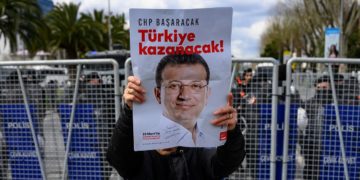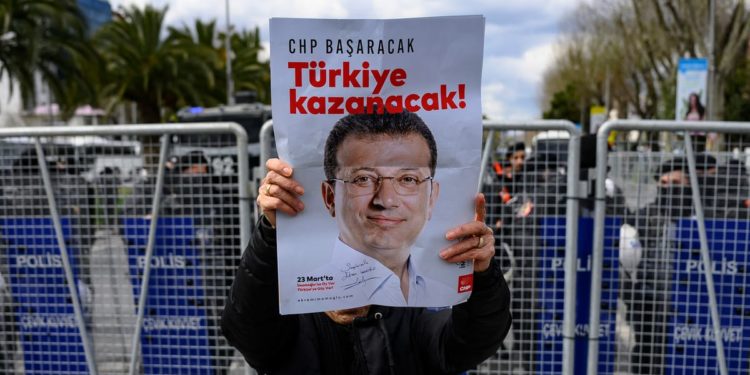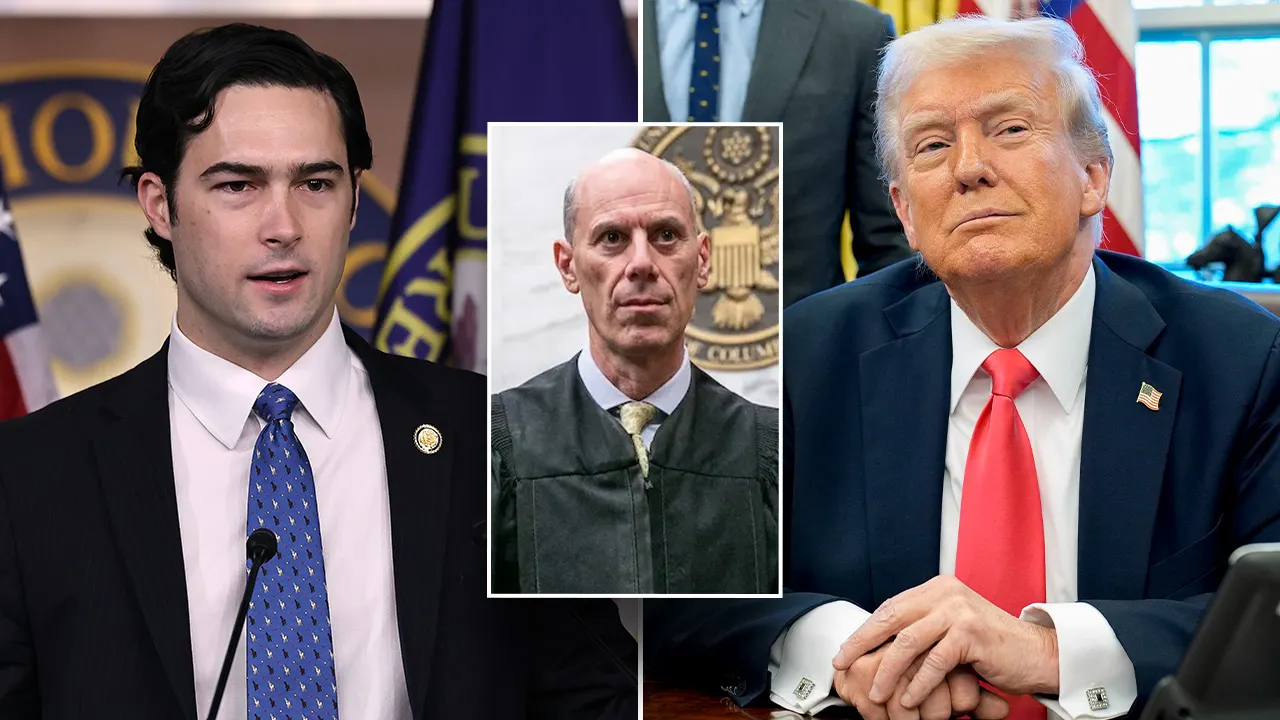BRUSSELS — The European Union is set to keep pumping billions of euros into Turkey despite President Recep Tayyip Erdoğan’s sweeping crackdown on political opponents.
Brussels warned its southern neighbor to “uphold democratic values” after authorities there arrested opposition leader Ekrem İmamoğlu over the weekend. But Turkey’s strategic importance means the bloc will likely end up turning a blind eye.
And Erdoğan knows it.
As far as the Turkish leader is concerned, “whatever he does, the EU will have to tag along with it,” said Dimitar Bechev, a lecturer at the University of Oxford.
Two European officials, granted anonymity to speak about closed-door talks, told POLITICO that Turkey’s status as an EU candidate obliges it to uphold democratic values, and that Brussels will respond to violations.
“We are following the evolving situation in Turkey with great concern,” one of them said. With more than a thousand people, including journalists, detained by security forces since the unrest began last week, “the latest developments go against the very logic of EU accession.”
However, given Turkey’s importance on migration, trade, energy and defense, any response from the EU is unlikely to upend relations between Brussels and Ankara, the other conceded.
Turkey applied to join the EU in 1999. Although talks have come to a standstill over the past decade, the country still receives billions in accession funds. Ankara has also received some €9 billion in aid to host refugees from the Middle East, and is in line for vast sums of money to support European defense industries.
Now an important hub for oil and gas exports, Turkey enjoys trade flows with the EU worth more than €200 billion annually. Since Russia’s full-blown invasion of Ukraine in 2022 it has also been key to controlling access to the Black Sea and to enforcing sanctions against Moscow. It has recently been mooted as a major contributor to any eventual peacekeeping mission in Ukraine.
“The status quo before İmamoğlu’s arrest was comfortable for the EU because there was just enough democracy,” Bechev said. Recent developments, he added, aren’t grave enough to change that.
The best defense
As an EU candidate country, Turkey can potentially access joint procurements worth €800 billion from funds designed to boost the bloc’s defense spending, according to the Readiness 2030 plan presented by EU leaders last week.
However, Greece and Cyprus — both in long-running conflicts with Turkey — are pushing for restrictions, with diplomats telling POLITICO they intend to enforce a clause that would require the defense push to happen “without prejudice to the specific character of the security and defence policy of certain Member States.”
With its NATO-trained armed forces and vast military-industrial complex, though, Ankara is convinced these objections will be overruled.
If Europeans “want Turkish participation in certain areas — for example, sending troops to Ukraine in the future — then they will have to give access to Turkey,” said Turkey’s former Ambassador to the EU Selim Yenel.
Yenel said the domestic situation was dire — “there is no law” left in Turkey, he claimed — but predicted that “since it seems that the EU needs Turkey, they will not put pressure on us.” Regarding the Western values countries must uphold for accession, he said, Erdoğan “is playing lip service to that.”
Troubled waters
Greece and Cyprus must now perform a delicate balancing act, having been in the process of normalizing relations with Ankara before the latest political crisis.
“We will, of course, support a rigorous position condemning the current developments in Turkey, but without being the trigger,” said a senior Greek official, acknowledging that even Athens couldn’t go too far.
“The defense industry remains a big gap for Europe, and this paves the way for this trade-off policy that we see taking place.”
Cyprus is also in a difficult position, as Turkey appeared to strike a far more conciliatory tone during last week’s informal talks on the Cyprus problem held in Geneva.
“Effective pressure from the EU is essential,” said Cypriot MEP Michalis Hadjipantela, calling for “targeted sanctions.” But at the same time, “measures should be targeted and linked to progress on the above issues in order to avoid further alienating the country, which would lead to more provocative policies.”
The post EU faces billion-euro dilemma over Turkey crisis appeared first on Politico.


















